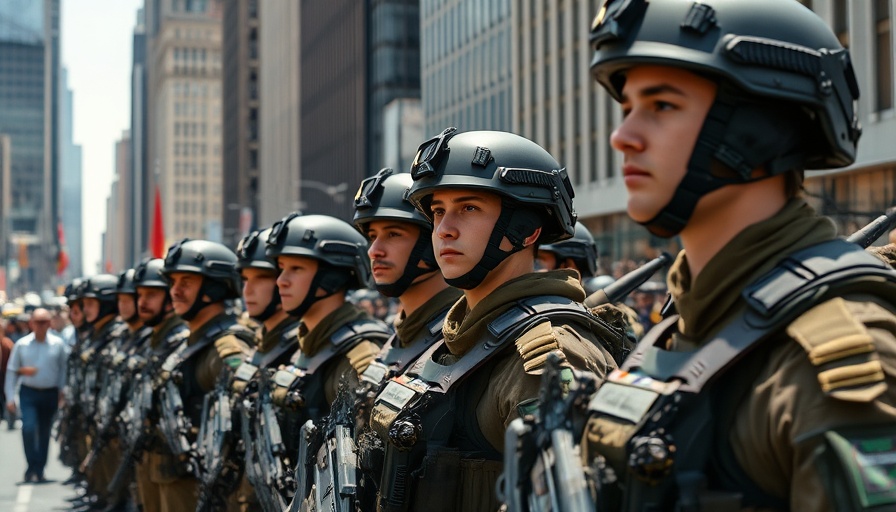
Trump’s Plan to Send National Guard to Memphis: What It Means for the City
In a surprising announcement, former President Donald Trump stated he would deploy the National Guard to Memphis, Tennessee. This move is part of an ongoing dialogue regarding public safety and crime prevention which has become a pressing issue in many urban areas across the United States. As Memphis grapples with rising crime rates, Trump's plan could be seen as a controversial yet decisive step aimed at restoring law and order in the community.
Understanding the Current Crime Climate in Memphis
Memphis has faced significant challenges with crime in recent years, making headlines for its increased incidents of violence and property crimes. The decision to send in the National Guard may be viewed as a necessary intervention by some who believe local law enforcement is overwhelmed. However, others argue that the long-term solution lies not in militarizing the streets but in addressing the underlying socio-economic issues that contribute to crime.
Public Response to the Announcement
Reactions to Trump's announcement were swift and varied. Supporters see the deployment as a proactive measure to protect residents, while critics claim it could escalate tensions between citizens and law enforcement. Public forums and social media have lit up with opinions ranging from support for a firmer approach to law enforcement to calls for community-based solutions that promote healing rather than confrontation.
The Role of the National Guard: A Historical Perspective
Historically, the National Guard has been deployed in various situations across the country, from natural disasters to civil unrest. Examples like the deployment during the Los Angeles riots in 1992 illustrate how military assistance can both restore order and complicate community relations. The current context in Memphis raises questions about how effective such a strategy might be in achieving lasting change.
Potential Impacts on Memphis's Community Relations
Sending in the National Guard could lead to significant shifts in community dynamics. Activists and community leaders are concerned about the potential for increased tensions, particularly in neighborhoods already struggling with trust in law enforcement. This situation calls for a balanced approach that prioritizes communication between the citizens and the deployed forces to mitigate fears and build a path towards collaboration.
Looking Ahead: Future Implications and Predictions
As Memphis braces for the National Guard deployment, the city’s response could serve as a litmus test for similar strategies nationwide. Should this deployment yield positive results in terms of crime reduction without jeopardizing community trust, other cities may follow suit. Conversely, any negative fallout could spark a national conversation about the militarization of local police forces and the broader implications for civil rights.
Decisions for Local Leaders and Citizens
With the National Guard's involvement, local leaders will have to make critical decisions on how to manage this new phase of public safety. Strategies could involve community outreach programs that inform residents about the National Guard’s role, or town hall meetings facilitating discussions about fears and expectations. Community engagement will be vital in reshaping perceptions and ensuring that safety strategies resonate with the needs of Memphis residents.
Concluding Thoughts on Public Safety and Community Trust
The prospect of deploying the National Guard in Memphis presents both opportunities and challenges. It calls for thoughtful evaluation of public safety strategies in light of community relations. As the situation unfolds, it's essential for local leaders to prioritize transparency and dialogue with residents. Only through collective effort can Memphis hope to navigate this complex landscape of crime, safety, and community trust.
 Add Row
Add Row  Add
Add 




Write A Comment